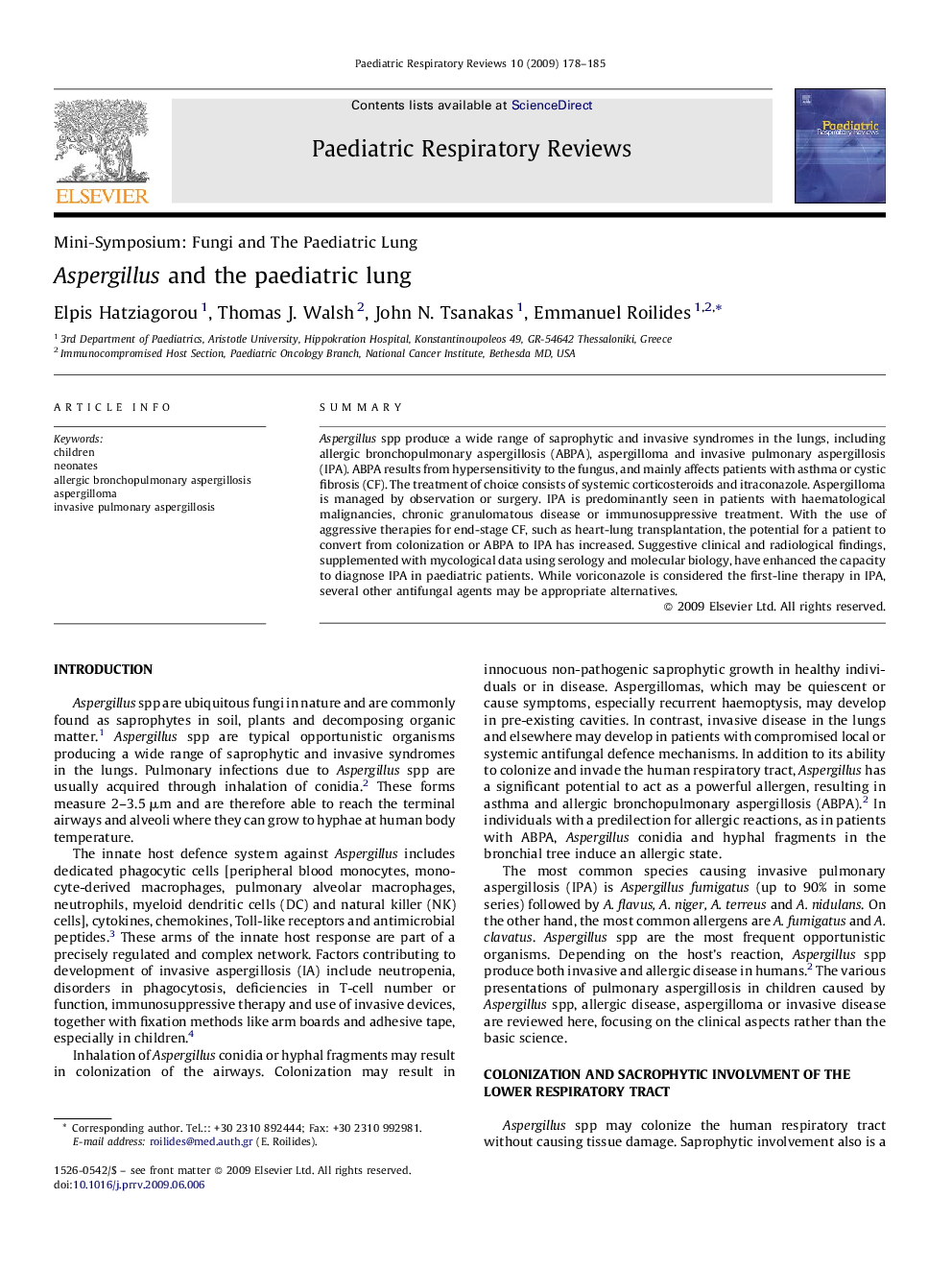| Article ID | Journal | Published Year | Pages | File Type |
|---|---|---|---|---|
| 4171272 | Paediatric Respiratory Reviews | 2009 | 8 Pages |
SummaryAspergillus spp produce a wide range of saprophytic and invasive syndromes in the lungs, including allergic bronchopulmonary aspergillosis (ABPA), aspergilloma and invasive pulmonary aspergillosis (IPA). ABPA results from hypersensitivity to the fungus, and mainly affects patients with asthma or cystic fibrosis (CF). The treatment of choice consists of systemic corticosteroids and itraconazole. Aspergilloma is managed by observation or surgery. IPA is predominantly seen in patients with haematological malignancies, chronic granulomatous disease or immunosuppressive treatment. With the use of aggressive therapies for end-stage CF, such as heart-lung transplantation, the potential for a patient to convert from colonization or ABPA to IPA has increased. Suggestive clinical and radiological findings, supplemented with mycological data using serology and molecular biology, have enhanced the capacity to diagnose IPA in paediatric patients. While voriconazole is considered the first-line therapy in IPA, several other antifungal agents may be appropriate alternatives.
